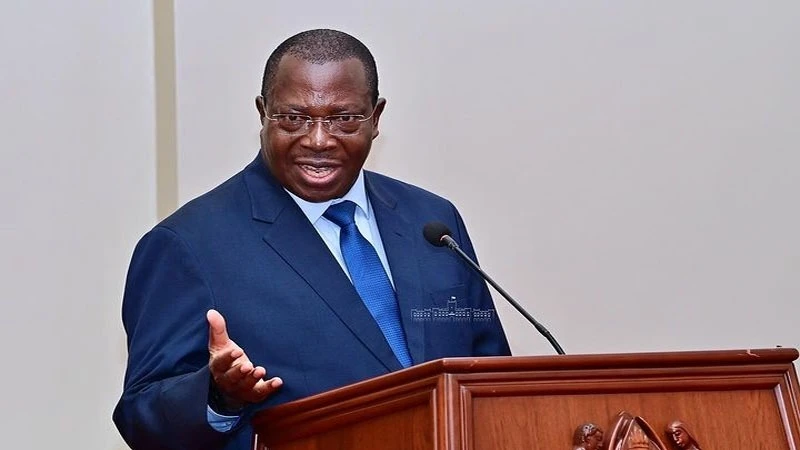Appeals for revitalised global initiatives on SDG goals lacked reform parameter

THOUSANDS of delegates from upwards of 100 countries at the very least and scores of activist organisations were holding the fourth international conference on financing for development (FfD4) in the Spanish provincial tourist city of Sevilla, where Vice President Dr Philip Mpango provided far reaching remarks.
As it is usually the case in such conferences, there were overlaps in themes and spheres of emphasis, while each country presents a measured view of what it believes exists or ought to be changed. In our case it was an appeal for transformative reforms in the global financial system, a view going down well with activist organisations.
It is one thing to propose to delegates from across the world that a financial framework that is more equitable, transparent and responsive to the development priorities of countries in the Global South, and another to build diplomatic synergies to make it happen.
Goals concerning what the world needs to do together need at least two thirds of all participating states, with upwards of a half of the developing countries included, to have any chance of success. In that case Tanzania has stated a case for maintaining the status quo and improving financing to attain SDGs, echoing numerous similar views, but can hardly attain a consensus.
In what might have been really a parting speech on international stage as a top representative for the country, the VP emphasized the need for a new financial architecture built on sustainability, predictability, fairness and relief—especially for nations burdened by unsustainable debt.
This outlook is precisely what is being put at fault, but as it is evident from most UN agencies, overall sentiments of the international community or governments and development partners have not changed. Other avenues will be needed to reach such goals, given the fact that the United States, usually contributing a quarter of UN needs, didn’t bother to attend.
One tangible idea that many NGOs definitely wished to hear, as it wasn’t a hot item in the legislative months just behind us, is that proposed innovative financing solutions need to include debt-for-nature swaps. The VP explained that this would allow debt repayments to be redirected toward environmental conservation, as the swaps offer dual benefits by taking up ecological preservation and fiscal pressures facing developing economies. This would demand a comprehensive overhaul of how debt sustainability is assessed, making debt a world issue, not client-based.
What was somewhat amazing was that the critique levelled at current international financial architecture was the thrust it took to bail out debt-ridden countries, in the wake of vast changes of attitude putting to question even the little that could still be reasonably expected from the multilateral system.
In other words the format of the remarks, where the VP was an outstanding spokesman for not just African countries but the vast majority of major NGOs was decidedly counter-current. It is seeking to mobilise all other development partners to retain faith, outside the US.
Yet as they sometimes say, ‘misfortune never comes alone.’ So while the US is reducing in a severe manner its engagement in several United Nations agencies by disrupting activities of its own agency for international development, it has raised other hurdles against any country which thought it could diminish the gap. The reciprocal tariffs the US has raised have eroded welfare surpluses and aid funds.
Top Headlines
© 2025 IPPMEDIA.COM. ALL RIGHTS RESERVED

















